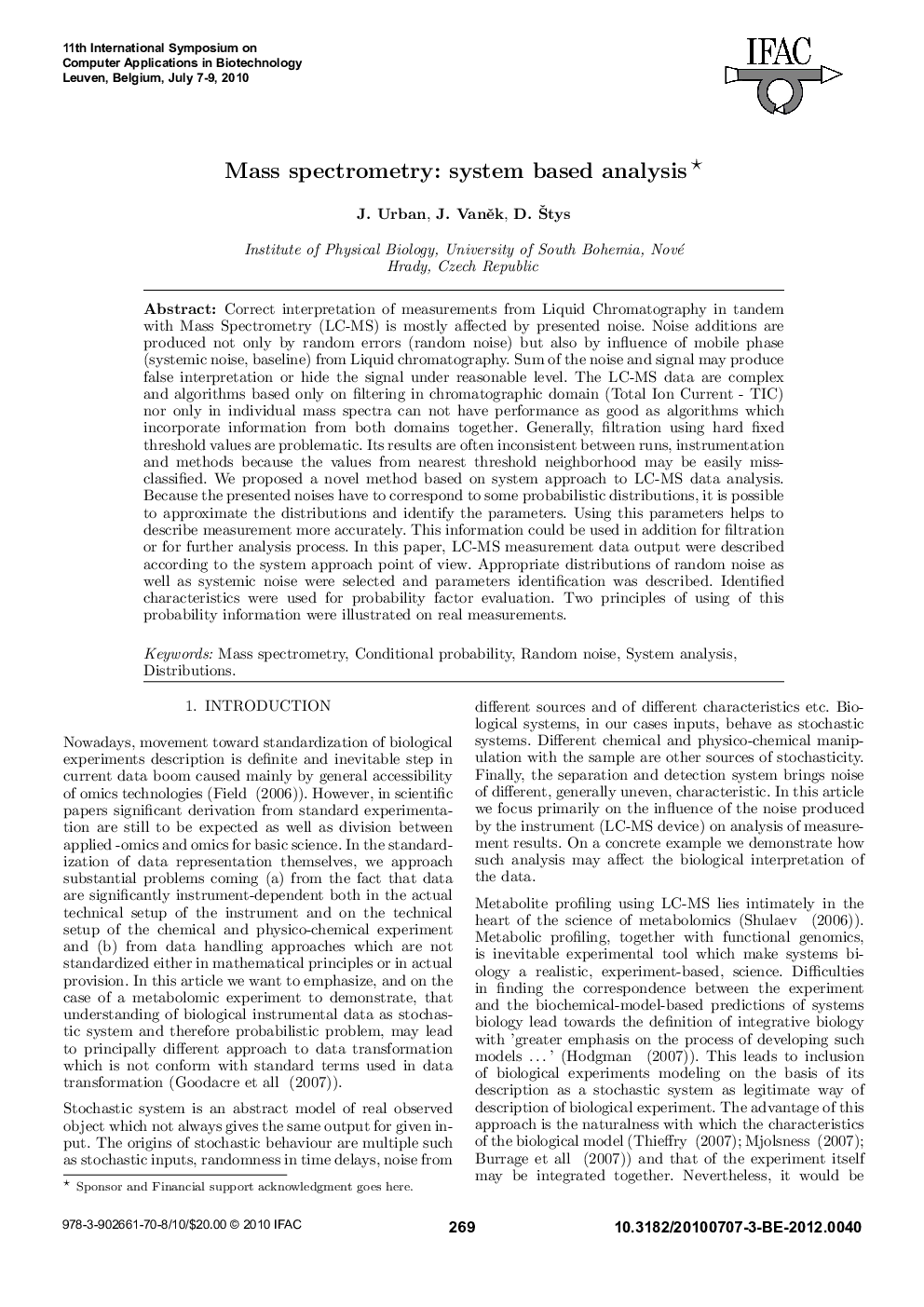| Article ID | Journal | Published Year | Pages | File Type |
|---|---|---|---|---|
| 720305 | IFAC Proceedings Volumes | 2010 | 6 Pages |
Correct interpretation of measurements from Liquid Chromatography in tandem with Mass Spectrometry (LC-MS) is mostly affected by presented noise. Noise additions are produced not only by random errors (random noise) but also by influence of mobile phase (systemic noise, baseline) from Liquid chromatography. Sum of the noise and signal may produce false interpretation or hide the signal under reasonable level. The LC-MS data are complex and algorithms based only on filtering in chromatographic domain (Total Ion Current - TIC) nor only in individual mass spectra can not have performance as good as algorithms which incorporate information from both domains together. Generally, filtration using hard fixed threshold values are problematic. Its results are often inconsistent between runs, instrumentation and methods because the values from nearest threshold neighborhood may be easily missclassified. We proposed a novel method based on system approach to LC-MS data analysis. Because the presented noises have to correspond to some probabilistic distributions, it is possible to approximate the distributions and identify the parameters. Using this parameters helps to describe measurement more accurately. This information could be used in addition for filtration or for further analysis process. In this paper, LC-MS measurement data output were described according to the system approach point of view. Appropriate distributions of random noise as well as systemic noise were selected and parameters identification was described. Identified characteristics were used for probability factor evaluation. Two principles of using of this probability information were illustrated on real measurements.
